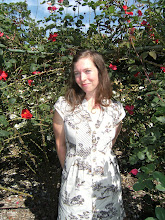My Beliefs
The human body is complex, and every person’s needs are unique. No one way of eating or living is appropriate for all people, which is why no one “diet” or lifestyle is appropriate for every person. There are many shapes and sizes that are considered to be perfectly healthy. My goal as a Nutritional Therapy Practitioner (NTP) is to help people understand that what they eat affects how they feel, and often, how they think and act. Certain foods energize people, give them strength and vitality, while other foods steal this energy away, and make people feel tired, sluggish, and all too often, depressed. People who seek Nutritional Therapy want to experience improved and abundant health.
At the core of Nutritional Therapy, is the belief that traditional foods are best, and if the food that you are eating does not rot at some point, you probably should not be eating it. Traditional foods have nourished people for centuries and tradition foods will continue to nourish people into the future if we heed the wisdom that has been passed on throughout the years.
Michael Pollan, author of In Defense of Food, said that if your great-great-grandmother wouldn’t recognize it, don’t eat it.
I believe that this is sage advice.
Nutritional Therapy begins with the desire to reclaim health and lost vitality.
Nutritional Therapy is most successful when individuals are willing to transition to eating whole, nutrient-dense foods, with the knowledge that organic and hormone-free foods are the most nutritious.
Nutritional Therapy takes time and commitment. If a healthful habit takes 30 days to initiate, then an unhealthful habit will take just as long to break.
As a Nutritional Therapist Practitioner, it is my job to assess each client’s overall health and to find a nutrition plan that works for the individual. The initial assessment has several steps. In the initial interview and food consultation, the client’s health concerns will be discussed and dietary suggestions will be made. The second part of the consultation consists of an evaluation of the systems of the body, where I will assess potential nutritional weaknesses in the client’s body. Nutritional weaknesses often act as roadblocks to overall health. Once these roadblocks are removed people will often experience improved health. Sometimes supplements help to remove these roadblocks, but often changes that are made to one's diet are just as effective. We will discuss the options. Once some initial recommendations have been made, and the client begins to work with this new information or protocol, I recommend a follow up interview to assess whether or not the person feels better, and to discuss successes, challenges, or concerns with the overall plan.

Traci! My friend Michelle just got back from a couple weeks in Rwanda and she wrote a really interesting blog post about the food situation there. It includes things that most of us Americans would just never even fathom. I think you'll find it pretty interesting (and heart-warming):
ReplyDeletehttp://fontologist.blogspot.com/2009/07/rwanda-09-food.html